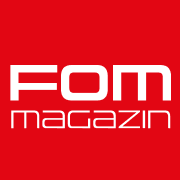According to a current draft bill by the German government, questions and motions are also to be permitted during digital annual general meetings. Shareholder advocates agree; companies fear a wave of lawsuits. FOM software creates legal certainty!
Digital AGMs proved their worth during the COVID lockdowns - but at the time they were also the only possible solution. The question now is whether the digital format was an exception or whether it will become the standard. The FOM editorial team is - unsurprisingly - clearly in favor of the latter. The German government takes a similar view.
According to a government bill passed by the Bundestagat the end of April, a general meeting is likely to decide to meet only digitally in the future. Thus, the "corona-related provisional solution" is to become a permanent one, according to Federal Minister of Justice Marco Buschmann. In principle, both the Bundestag and the private sector agree that digital formats offer many advantages. When it comes to the details, however, there are disputes.
Controversy over the right to ask questions and file motions
The German government's draft was criticized above all with regard to the regulation of the right to ask questions and file motions. In an initial draft bill from last year, sharp restrictions were imposed on the right to ask questions. For example, questions were to be submitted before the meeting, but not at the actual meeting. However, under pressure from shareholder activists, this was corrected in the draft now passed: Now additional questions and motions are also to be allowed to be submitted at the meeting.
Shareholder protectors such as the Schutzgemeinschaft der Kapitalanleger (SdK) welcome this correction: A lively exchange should take place at the Annual General Meeting and shareholders should be able to observe the board's reaction to questions. Markus Kienle from the SdK is quoted on this in the Tagesschau: "You would also like to know from a contractual partner how someone reacts in critical situations," says Kienle.
Business associations see things differently: In a letter to the associations , the Federation of German Industries (BDI), the German Chemical Industry Association (VCI) and the German Stock Institute (Deutsches Aktieninstitut) criticized the fact that legal risks would arise for companies by retaining the right to ask questions at digital general meetings. Lawsuits could be filed if questions at the digital meeting were not answered in full.
FOM software solves the problem
Both the SdK and the business associations are right in their criticisms: the Annual General Meeting must offer shareholders the opportunity to ask questions - and enable the Board to answer them. On the other hand, it is also true that legal risks may arise.
The solution is called FOM software! FOM-Software provides several legally compliant channels to ask questions at digital general meetings: For example, there is a chat function and a report button. Those who call in are put on hold. As soon as it is the questioner's turn, their audio and video transmission is activated and they can ask their question. All questions, whether via chat or video, are recorded and automatically logged.
Since the participants' transmission bandwidth is recorded and transmitted during the FOM, no one can claim afterwards that they could not have asked questions for technical reasons. The issue of legal certainty for questions and motions has thus been clarified - in the interests of shareholders and the Company.
Criticism of debate culture
Shareholder advocates like Markus Kienle are not completely convinced by digital formats either. Large shareholder meetings in particular are characterized by the fact that many people come together and discuss issues in the foyer or during breaks, for example. This debate culture suffers with digital formats.
Kienle is absolutely right about this, but there are also various approaches to solving this problem. The easiest way to maintain the culture of debate while leveraging the many benefits of digital AGMs is through hybrid meetings, where face-to-face meetings are complemented by the ability to participate digitally. This enables debate during the coffee break, but at the same time allows companies to optimize the efficiency of the meeting through the use of digital tools.
Another way to maintain the debate culture at FOMs would be to integrate it into a metaverse. During breaks, it would be possible to engage in individual conversations with event participants. You can read more about this in this guest article in FOM Magazine.
Shareholder advocates and business associations agree on one thing: hour-long general meetings are not very productive and similar questions are often asked over and over again. Hybrid and fully digital meetings reduce these inefficiencies. The criticisms of the German government's draft law are valid, but they can be easily solved with FOM software. It is therefore in the interest of all stakeholders to push for questioning rules that are as free as possible and to make the use of legally compliant FOM software a prerequisite for digital or hybrid general meetings.







